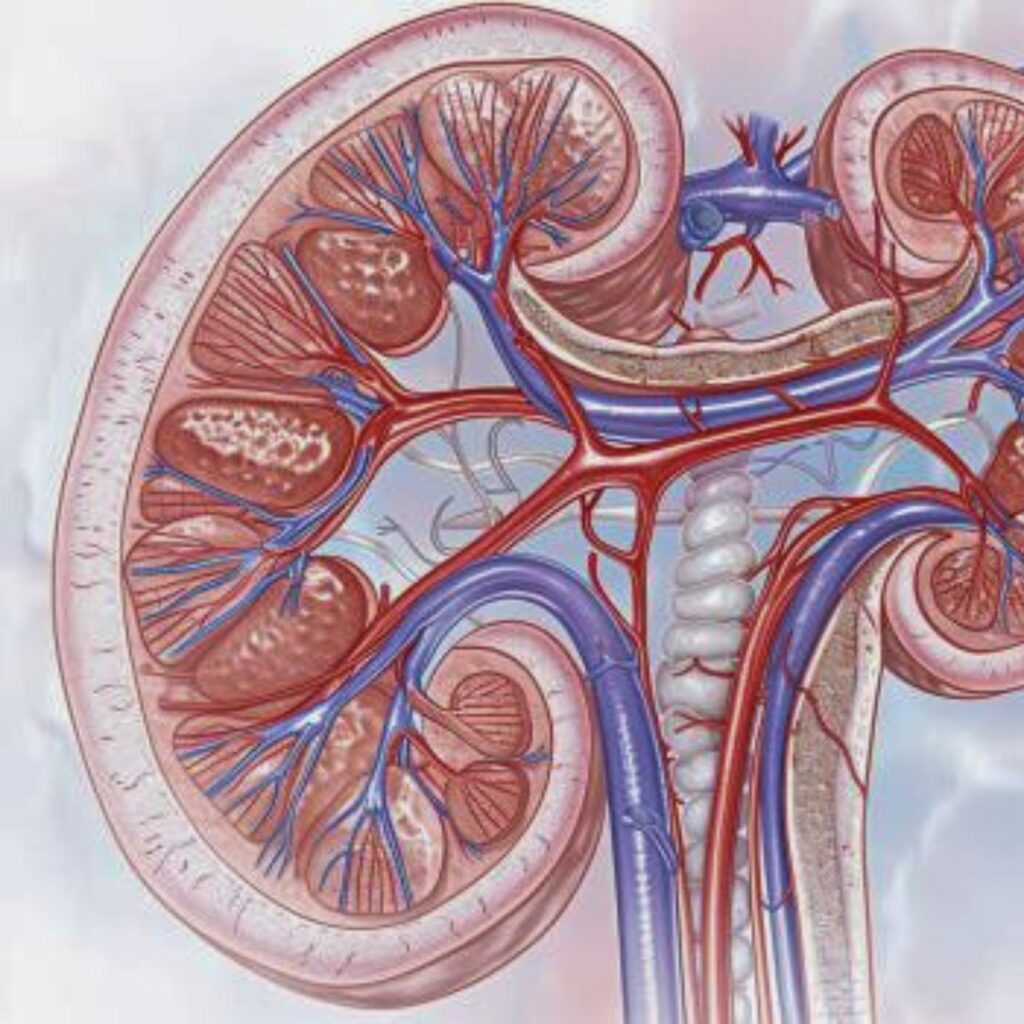
Your kidneys play a vital role in filtering waste and toxins from your blood, regulating blood pressure, balancing fluids, and producing essential hormones. To keep your kidneys functioning optimally, it’s important to adopt healthy habits. Here are some of the best tips for maintaining kidney health:
1. Stay Hydrated
- Importance: Drinking plenty of water helps your kidneys flush out toxins and prevent the buildup of waste in the body.
- Tip: Aim for 8-10 glasses of water a day, but adjust based on your activity level, climate, and health conditions.
2. Eat a Balanced Diet
- Importance: A diet rich in fruits, vegetables, whole grains, and lean proteins supports overall kidney function and helps manage blood pressure and blood sugar levels.
- Tip: Limit your intake of sodium, processed foods, and excessive protein, as these can strain the kidneys.
3. Monitor Blood Pressure
- Importance: High blood pressure is a leading cause of kidney damage. Keeping your blood pressure in check helps protect your kidneys.
- Tip: Regularly check your blood pressure and manage it through diet, exercise, stress reduction, and medication if necessary.
4. Control Blood Sugar Levels
- Importance: Diabetes is another major risk factor for kidney disease. Properly managing your blood sugar levels can prevent kidney damage.
- Tip: Monitor your blood sugar regularly, follow a diabetes-friendly diet, exercise, and take prescribed medications as directed.
5. Avoid Excessive Use of Painkillers
- Importance: Over-the-counter painkillers, especially NSAIDs (non-steroidal anti-inflammatory drugs), can harm your kidneys if used excessively or over long periods.
- Tip: Use painkillers only as directed and consult your doctor if you need to use them regularly.
6. Exercise Regularly
- Importance: Regular physical activity helps maintain a healthy weight, reduces blood pressure, and improves blood circulation—all of which are beneficial for kidney health.
- Tip: Aim for at least 30 minutes of moderate exercise, such as walking, swimming, or cycling, most days of the week.
7. Avoid Smoking and Limit Alcohol
- Importance: Smoking reduces blood flow to the kidneys and can worsen existing kidney conditions. Excessive alcohol intake can also damage the kidneys over time.
- Tip: Quit smoking and limit alcohol consumption to moderate levels (no more than one drink per day for women and two for men).
8. Maintain a Healthy Weight
- Importance: Being overweight increases the risk of diabetes, high blood pressure, and kidney disease. Keeping a healthy weight reduces the strain on your kidneys.
- Tip: Combine a balanced diet with regular exercise to achieve and maintain a healthy weight.
9. Get Regular Kidney Function Tests
- Importance: Regular kidney function tests can detect issues early, allowing for timely intervention and treatment to prevent further damage.
- Tip: If you have risk factors like diabetes, high blood pressure, or a family history of kidney disease, ask your doctor about regular kidney function tests.
10. Limit Salt Intake
- Importance: High sodium intake can lead to increased blood pressure, which is harmful to the kidneys.
- Tip: Use herbs and spices to flavor your food instead of salt, and avoid processed and packaged foods high in sodium.
Conclusion: Prioritize Kidney Health
Taking care of your kidneys is crucial for overall health and longevity. By following these tips and making conscious lifestyle choices, you can support your kidneys and reduce the risk of developing kidney-related issues. Regular check-ups and being mindful of your body’s needs will go a long way in maintaining healthy kidneys.
Stay healthy! 🌿💧